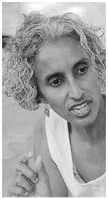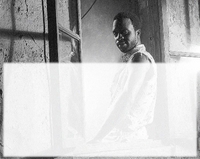Six minutes out of 'Kingston Paradise'
Published: Sunday | August 30, 2009

Wells
When Creative Productions and Training Centre (CPTC) senior editor Garnet Lewis strides into the studio where Kingston Paradise director/writer Mary Wells has been telling The Sunday Gleaner more about her first feature-length drama, he is all business.
"You find the shot?" he asks Wells, to begin Wednesday afternoon's editing session, the second of the day. The first had yielded a three-minute excerpt from a scene where Rosie (Camille Small) confronts Rocksy (Christopher Daley) with a handgun, urging him none too gently to mend his hustling ways. Rosie will also be in the second clip, as she has an intense moment with Paul Shoucair, who plays a Lebanese businessman, part of the dialogue having the movie's title line as Rosie says she wants to find peace "in this Kingston Paradise."
Wells has found more than 'the shot'. She has found "about three. And there is a much better overhead".
"When you're looking at so much footage you get confused," Wells says to The Sunday Gleaner. "You're going to put it in the bin now," she asks Lewis, who replies "yes". She asks if she should give him the shot number and ditto for his reply.
The shot comes from Day 22, eight gig 2.
The 'bin' is not, of course, of the rubbish variety, but the storage spot for the clips that will be used to compile the clip. And it takes a while to cull three cohesive, powerful minutes, as The Sunday Gleaner soon realises.
non-linear digital editing
"Even though non-linear digital editing is wonderful, the prep you have to do to put it together ...," Wells says to The Sunday Gleaner. She is cut short for Lewis asking "this one?" It is and Rosie, in all her multi-hued hair glory, is on the screen. When they reach the ending point (and there is discussion about just where that should be) the shot is frozen.
The video editing process is new to The Sunday Gleaner and, as it continues, it's a bit strange to see an image on the screen, but the dialogue coming from the other character. And there what seems to be the all-important 'reaction shot', as each character reacts to the situation as it unfolds.
Editor and director have their firm discussions, like when Grant says, "We have to set the dialogue first." Wells opines, "We need to show her reaction." Lewis insists that they need to lock in the dialogue first.
Detail is everything, like exactly when Shoucair should sip his beer in Rosie's discussion of his new car and if the shot should continue to him putting down the bottle.
The dialogue between two people from two worlds in the Jamaican society is interesting. When Shoucair says he will not stop until he retrieves his stolen car, Rosie retorts, "Hi, yu soul need a washout!"
Time is extremely important as well. At one point, Lewis says, "There is a long silence before he delivers his line. Do you want all of it?" There is silence in the studio as they watch and watch - and decide that the silence is really too long and cut it. As Shoucair's eyes go down, then up again, Wells says, "see the attention to detail?"
Rocksy appears in the background, in Rosie's line of vision, and they work out the sequence of her reaction to seeing him and then the businessman's reaction to her reaction, looking over his shoulder.
back and forth
"This is so much back and forth," Wells comments and Lewis laughs, saying a bit philosophically, "That's how it is, back and forth."
With the shots compiled the editor takes a break and Wells shows The Sunday Gleaner what has been done so far for the day, two three-minute clips without the music and sound effects that are added to really make a movie come to life.
To The Sunday Gleaner's untrained eye it does not look bad at all, but Wells starts seeing more editing requirements from the get-go.
"And to think this only three minutes and I'm going for an hour and half," she says.

Christopher Daley plays Rocksy in Kingston Paradise. - Contributed
























